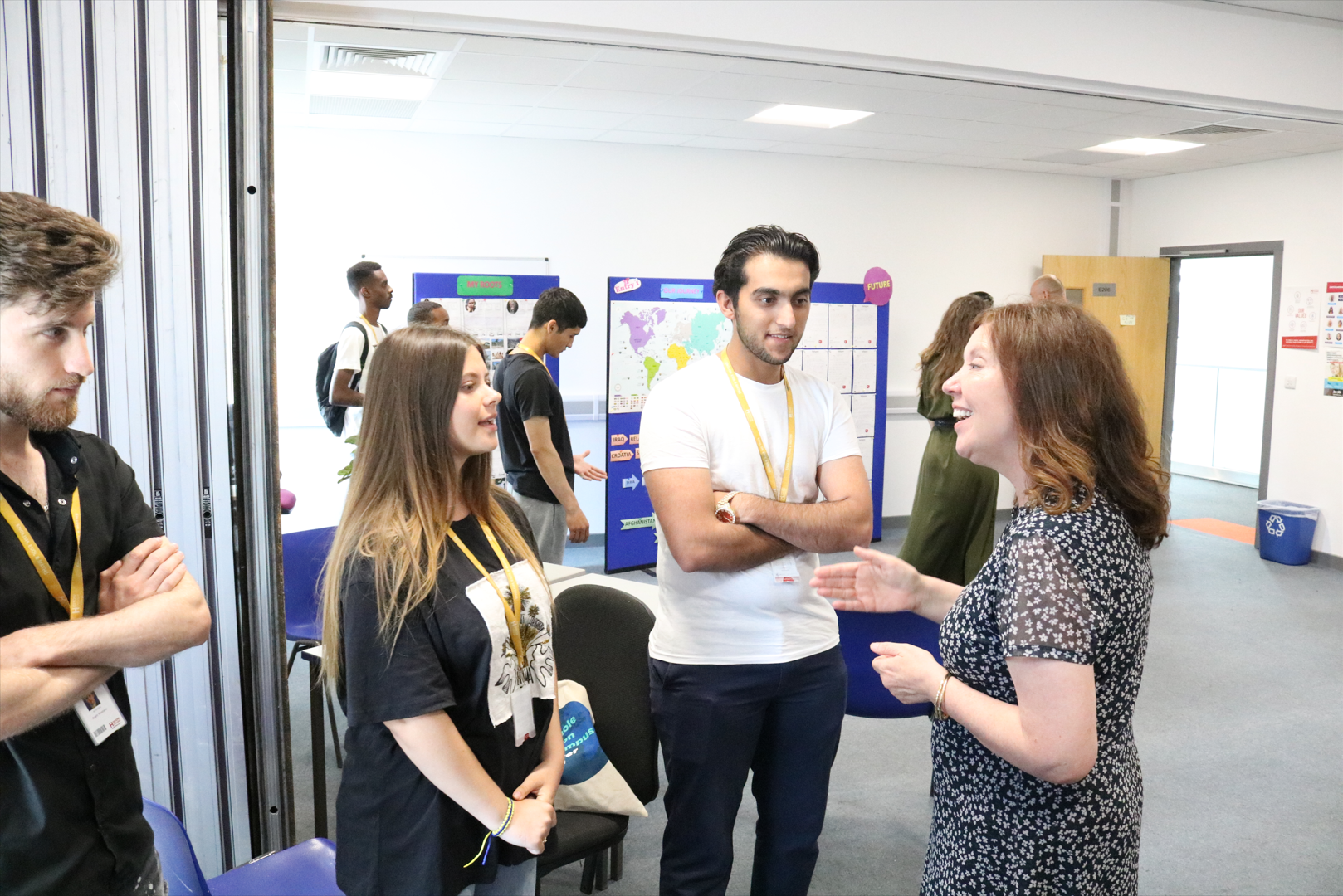Harrow College had the pleasure of welcoming Dame Rachel de Souza, Children’s Commissioner for England, to its Harrow on the Hill campus to view the College’s work with accompanied asylum-seeking children and its partnership with the Lumina Project run through Harrow School.
Accompanied by Harriet Waldergrave, Head of Families and Care at the Children’s Commissioner’s office, Dame Rachel was immersed in the work the teaching and support teams provide for a wide range of students that arrive in the UK unaccompanied with little or no English language.
The visit which was organised by Tim Dalton, Director of Shaftesbury Enterprise at Harrow School and Therese Lorphevre, Head of School for ESOL, English and Maths at Harrow College, demonstrated some of the many ways in which the College provides solutions to ensure students can access the support they need alongside its work with local partnerships to extend the opportunities available. It was also an opportunity for our students to share some of the challenges they faced as unaccompanied young people, many of which the Children’s Commissioner’s office is working on, and to talk about some of the ways they have progressed in their studies and developed more confidence in their daily lives, with the support provided by the College and its network.
Harrow College's ESOL department offers full-time and part-time courses, at a variety of levels from beginners to improvers and beyond, for young people and adults. The ESOL department is headed up by Therese, who was once an ESOL student herself and has worked in further and higher education for over 30 years. She is passionate about championing and improving the prospects of ESOL students and believes strongly in the provision of a wide programme of study for ESOL students to support their full participation in the UK. This led her to create "The Living and Working in the UK" awards with Gateway to include elements that enable students to benefit from learning more about UK cultural norms, including citizenship, education, work, and social structures.
ESOL students at Harrow College (and now also Uxbridge College) have been benefitting from these courses and the visit provided the perfect opportunity for ESOL students to share how much they have valued their English teaching and all the additional activities and learning they have gained.
It was a busy schedule and most importantly provided Dame Rachel and colleagues with a visit to the classrooms to meet with students. The Commissioner was impressed by the students and their stories about their, often difficult, experiences of arriving into the UK, challenges with their lack of language skills, the different rules, little money, cultural differences, feelings of loneliness, navigating transport and adapting to a new environment. Dame Rachel also took time to find out about their big dreams and they didn’t hesitate to share their plans to become budding actors, pilots, engineers, IT professionals and entrepreneurs.
In joining Harrow College, our current students and some alumni shared how they had worked hard to improve their language skills, risen to the academic challenges, met other people with similar backgrounds and participated in enrichment activities including football, drama and community-focused work which have all helped to develop their confidence. They said the best thing about being at Harrow College included the teachers, trips, the discipline and student support.
Therese said of the visit:
“At Harrow College we share the Children’s Commissioner’s ethos that children should be well supported to go on to achieve well and access good jobs and careers for a bright future. As a college group we are committed to enabling our ESOL students to emerge from their journeys as well-rounded, ambitious and driven individuals. We were pleased to welcome our visitors and proud to showcase the amazing work that our ESOL department does and how it has supported many young people to go to achieve their future plans, be that going onto higher level courses, heading to university or going straight out into the workplace.”

